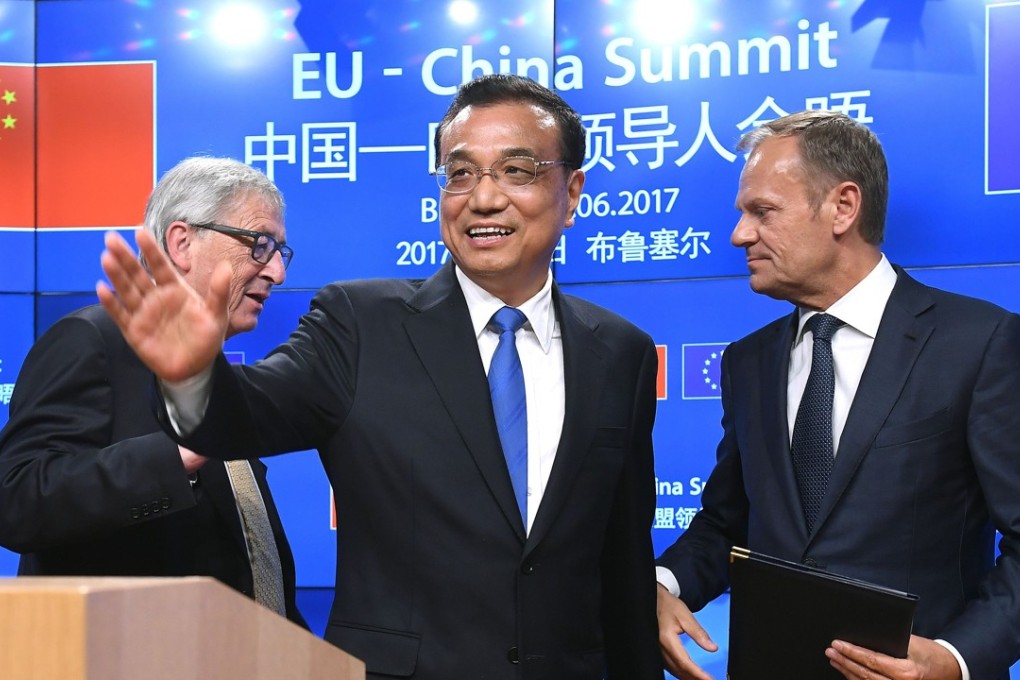What’s holding back China and EU on climate change agreement?
Where they agree and disagree on other important issues

Divisions over trade have prevented China and the EU releasing a much-hyped separate statement on cooperation to fight climate change. Below are some of the main issues in their relationship, and where both sides agree, somewhat agree and disagree:
Areas of disagreement
EU anti-dumping cases and China’s market economy status: The influx of cheap Chinese goods to Europe triggered a great number of anti-dumping and anti-subsidy investment and tariffs by the EU, most notably on Chinese psolar energy products and steel.
Despite Beijing’s protest, the EU did not grant China “market economy status” by the end of 2015 according to its accession protocol to the World Trade Organisation, which would place Chinese products in a better position in anti-dumping cases.
According to reports, the separate statement was dropped because of China’s insistence on having the EU’s eventual recognition of China’s Market economy status as a condition for the joint statement on climate change.
Protectionism and reciprocity issues: European companies have complained that in contrast to the openness Chinese investors enjoy in Europe, limited market access is affecting their business in China and has resulted in slowing investment growth. They are also unhappy with what they say are discriminatory market regulations against foreign companies and unfair competition with Chinese state-owned enterprises.